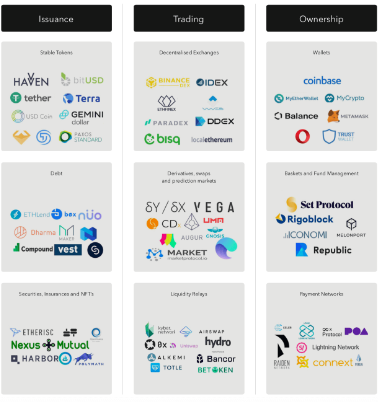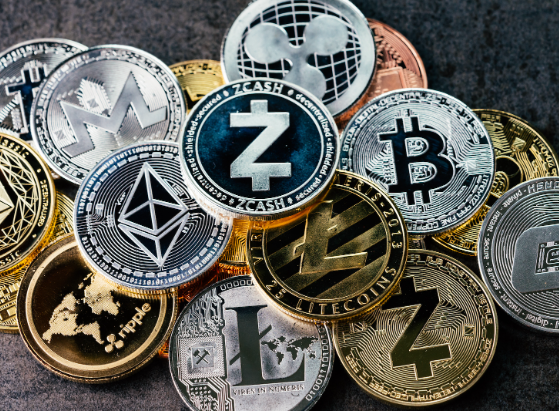A hardware wallet is a secure way to store your cryptocurrencies as it stores your private keys offline, reducing the risk of hacking or theft. In addition, it is crucial to use a strong, unique password and enable two-factor authentication on any online accounts. Keeping your software and firmware updated, as well as regularly backing up your wallet’s seed phrase in a secure location, is also recommended.
Introduction to Cryptocurrency Storage
Proper cryptocurrency storage is crucial to a successful portfolio as digital wallets pose unique security risks. Cryptocurrencies are vulnerable to theft and hacking if not stored correctly. It’s essential to understand the different wallet types and their security features. In this guide, we will explore hot wallets, cold wallets, and paper wallets, and provide valuable tips on how to safely store your cryptocurrencies to minimize the risk of loss and theft.
Understanding the Risks of Cryptocurrency Storage
In order to protect their investments, cryptocurrency investors need to understand and manage the risks associated with storage. The biggest risk is the possibility of hacking or theft, particularly for online wallets and exchanges that store private keys online. Additionally, the loss of private keys can lead to permanent loss of funds. Investors should also be aware of scams, phishing attempts, and malware that can compromise their accounts and steal their cryptocurrencies.
To mitigate these risks, it’s important to use reputable exchanges and wallets that provide strong security features, such as multi-factor authentication and cold storage. Investors should also take steps to protect their accounts, such as using unique and strong passwords and avoiding sharing sensitive information. Furthermore, diversifying holdings across multiple wallets and exchanges can minimize the impact of any potential security breaches.
Types of Cryptocurrency Wallets
Hot wallets, cold wallets, and paper wallets are the three main types of cryptocurrency wallets available.
Hot Wallets
Hot wallets are designed for frequent use and are connected to the internet. They are often used for storing small amounts of cryptocurrency for everyday transactions. Online wallets, desktop wallets, and mobile wallets are examples of hot wallets. However, they are more vulnerable to hacking and theft because they are always connected to the internet.
Cold Wallets
Cold wallets are offline wallets intended for the long-term storage of significant amounts of cryptocurrency. They are the most secure option for storing cryptocurrency as they are not connected to the internet. Hardware wallets, which are physical devices that store cryptocurrency offline, and offline paper wallets, which are simply a printed copy of a private key, are examples of cold wallets.
Paper Wallets
Paper wallets are a type of cold wallet that involves printing out the private and public keys on a piece of paper. They are secure if kept in a safe place but can be vulnerable to damage or loss. Due to their complexity in terms of proper handling and storage, paper wallets are not recommended for beginners.
Securing Your Cryptocurrency Wallet
To ensure the security of your cryptocurrency wallet, there are several recommended best practices to follow, regardless of the type of wallet you use. Firstly, it is crucial to use a strong and unique password, incorporating upper and lower case letters, numbers, and symbols. Additionally, enabling two-factor authentication adds an extra layer of security by requiring a code from a separate device or app to access your wallet. It’s also important to keep your wallet software and operating system up to date with the latest security patches and updates. Another key practice is to regularly back up your wallet and store a copy in a secure location. If you use a hot wallet, ensure it is stored on a secure device, such as a computer with strong antivirus software installed. Conversely, if you use a cold wallet, keep it in a secure location, such as a safe deposit box. Finally, be vigilant against phishing attacks, which are fraudulent attempts to obtain your private keys or sensitive information. Always verify the authenticity of any emails or messages before taking any action. Adhering to these best practices can minimize the risk of theft or loss and keep your cryptocurrency wallet secure.
Backup and Recovery Options
To protect against the risk of losing private keys or wallets, cryptocurrency wallets, particularly hardware wallets, provide backup and recovery options.. If the original private key is lost or stolen, the seed phrase can be used to regain access to the wallet. The seed phrase should be stored in a secure location, preferably offline and inaccessible to unauthorized persons.
Additional backup options may be available with some hardware wallets, including the option to create a backup on a microSD card or USB drive. It’s critical to follow the wallet manufacturer’s guidelines for creating and storing backups, as well as testing the backup to verify it works correctly.
Recovery options vary by wallet and manufacturer but generally involve inputting the seed phrase or backup file to restore access to the wallet. To avoid any errors that could result in permanent loss of funds, it’s crucial to follow the wallet manufacturer’s instructions for recovery.
Having a reliable backup and recovery plan is critical for protecting cryptocurrency investments and avoiding the risk of losing access to wallets and funds.
Conclusion
To conclude, securing your cryptocurrency storage is crucial for successfully managing your cryptocurrency portfolio. Understanding the different types of wallets available and adhering to best practices is crucial to ensure your funds remain safe. Regardless of the wallet type, it is important to use strong and unique passwords, enable two-factor authentication, keep your software updated, back up your wallet, store your wallet securely, and be wary of phishing attacks. These practices will significantly minimize the risk of theft or loss and keep your cryptocurrency wallet secure. It is important to remember that while the cryptocurrency world may be thrilling, prioritizing security and taking the necessary steps to protect your investments is vital.







